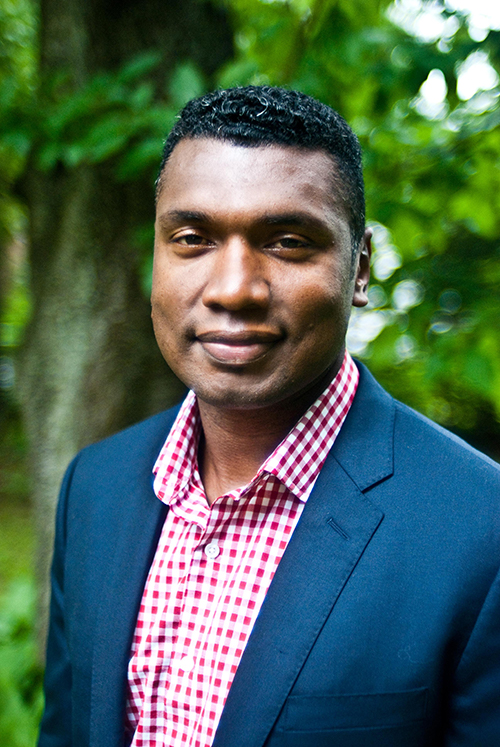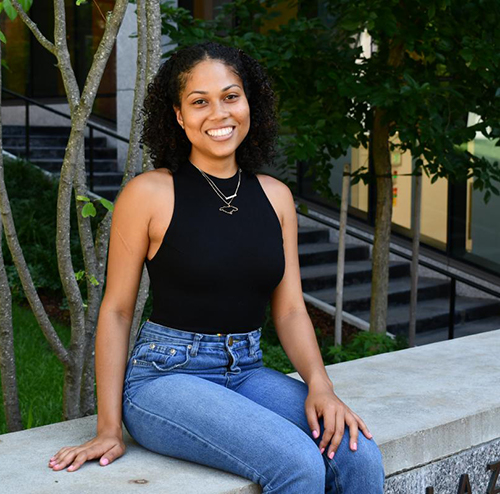PROVIDENCE, R.I. [Brown University] — During his sabbatical leave last semester, Brown physics professor Stephon Alexander did what most scholars do with their time away from teaching: He concentrated on his research. In Alexander’s case, that meant honing a theory of gravity that could explain puzzling aspects of the universe.
But that’s not all he did with the time.

“I had a few different opportunities for my sabbatical, but I really wanted to do something that provided an opportunity to give something back to the neighborhood where I grew up in the Bronx,” Alexander said. “I was very lucky when I was growing up to have great mentors who got me interested in math and science. I wanted to be able to do something similar for another generation of kids.”
So working with Brown Ph.D. student Farrah Simpson, Alexander pooled resources from the Harlem Gallery of Science, where he serves as executive director, and the National Society of Black Physicists (NSBP), where he serves as president, to launch a program called Dream+Inspire: Mentoring Future Leaders. The idea was to recruit professors and graduate students from the ranks of NSBP to serve as mentors for middle and high school students, many of whom are from groups historically underrepresented in STEM fields, from Harlem and the South Bronx.
Over the course of 13 weeks, mentors and mentees met weekly via Zoom, working on math and science exercises, reviewing students’ homework assignments, and sometimes just talking about what’s happening in each other’s lives. On a monthly basis, the entire cohort of 10 mentors and around 20 mentees met for larger group activities and discussions. The first cohort of students completed the program last January. A second cohort completed the program this summer.
“It’s much more than just kids getting help with help with homework,” Alexander said. “When they see their mentors in this program, the kids see their future selves. Just meeting a Black person who’s at Brown or Harvard, that gives kids a lot of hope and a lot of confidence. And it may also get a kid thinking about college who hadn’t otherwise thought about it.”
Simpson, a graduate student representative on NSBP’s executive board, helped to coordinate the effort as a mentor leader. She worked with other mentors, mostly graduate students from universities across the country, to develop activity plans used in one-on-one and cohort meetings. She said the experience has meant just as much to the mentors as it has to the mentees.
“I remember when I was that age, I loved the sciences, but I didn't have many mentors to look up to and didn't know of any scientists who looked like me,” Simpson said. “So having the chance to be that for these students, and to see our other mentors put in the work to be that for these students, has really been amazing.”
One student named Zainab said that interacting with her mentor provided a huge confidence boost.
“It was a reminder that I should never doubt myself and I know what I’m doing,” she said. “Just believing and trusting in me, in who I am, I will achieve success.”
Other mentees said the relationships with mentors have been important well beyond math and science. Particularly during the pandemic, mentees said they appreciated the personal bonds formed with mentors.
“My mentor, Elon, guides me on things not just in the program but also in school,” said a student named Tanaya. “I can talk to her about anything that’s bothering me.”

Simpson said it’s also been inspiring to watch students grow and thrive as the program unfolded.
“We have one student, Cherif, who learned that he had just gotten into a science program at Penn State, which is really exciting,” she said. “We have another student, Isabella, who’s only in sixth grade but asks such incredibly advanced questions it’s hard to believe she’s so young. I’m so excited to see where these students go from here, as well as where this program goes from here.”
Alexander and Simpson say that they consider work they’ve done in Harlem and the Bronx to be a successful pilot of something they hope will become much larger.
“We’d love to scale up and do this in other places,” Alexander said. “It would be great to try this in Providence, for example. Now that we’ve shown how well this can work, it would be great to expand.”
For now, Alexander says he’s happy with what these first cohorts were able to accomplish.
“Things really happened to come together just right for us to create something beautiful — especially amid the pandemic, which was really isolating for our mentees and mentors,” Alexander said. “I think it was quite rewarding for everybody involved.”